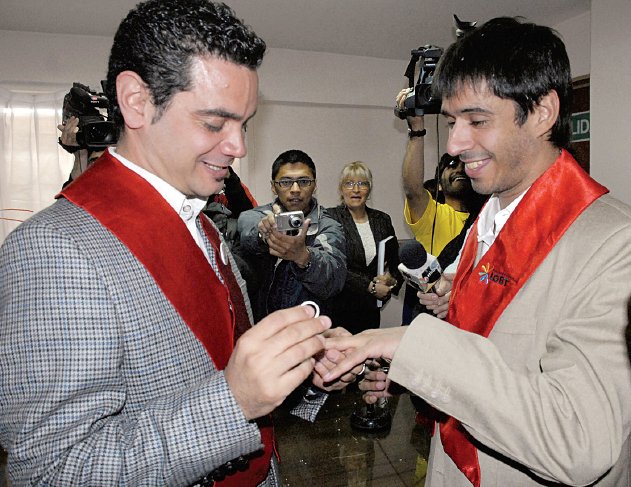Understanding World Societies:
Printed Page 1043
> What challenges did social reformers address at the turn of the twenty-first century?

Latin America’s first same-
AAS MOVEMENTS FOR HUMAN RIGHTS and social reform gained ground in the 1960s and 1970s, activists increasingly looked beyond national borders to form alliances. Movements for women’s rights, nuclear disarmament, environmental protection, and addressing climate change all became both local and global efforts. For example, the global anti-
The 1977 Nestlé boycott exemplified the kinds of success such movements could achieve as well as their limitations. Critics charged that the Swiss company’s intense marketing of powdered baby formula in poor countries or regions with little access to clean water posed a risk to children. Activists called on consumers around the world to boycott Nestlé products.
At first, Nestlé dismissed the boycott and sought to discredit the movement. However, widespread condemnation of Nestlé continued to mount, and in 1981 the UN World Health Organization responded to the campaign by developing a set of voluntary standards regulating the marketing of infant formula in poorer countries where access to clean water was precarious. In 1984 Nestlé agreed to follow the standards. The movement succeeded, but its success raised questions: multinational corporations operate beyond the reach of single governments and often operate in regions with weak regulatory or investigatory structures or in countries where repressive political systems shield them from scrutiny. As a result, it is hard to hold them accountable when their conduct is unethical. At the same time, social movements and nongovernmental organizations also acted outside the realm of public accountability.